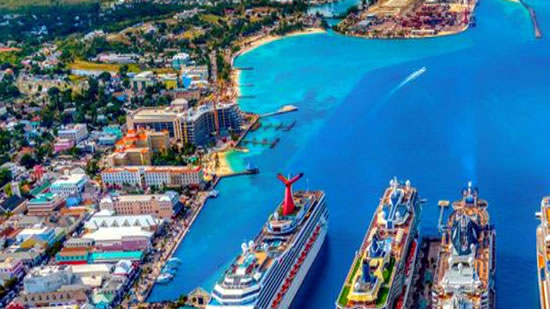Foreign shipping companies have spoken out against the length of time it takes in Nigeria to investigate and prosecute ships and crew arrested for drug and human trafficking, lamenting that this policy is scaring vessels away from Nigerian ports.
To this end, they have called on the National Drug Law Enforcement Agency (NDLEA) to rethink its current approach to handling drug seizures aboard ships, advising that the agency should consider adopting practical measures as the USA, Europe, Brazil, etc in order not to delay ships and crew when drugs are found on board.
These were part of a communique adapted by participants at the end of a one-day conference jointly organized by the Maritime Security Providers Association of Nigeria (MASPAN) and the Alumni of Maritime Academy of Nigeria (AMANO) in Lagos recently.
The conference which had as its theme: “Drugs &human smuggling/Trafficking: The Evolving Maritime Security Threats to Ships and Seafarers”, attracted foreign and local participants including government agencies, policy makers, ship owners, security experts, law enforcement agencies and other stakeholders.
The conference participants in the communique stated that ship owners and importers were incurring a lot of losses/costs as a result of drug and human trafficking through the seaports, and that importers and shipping operators bear huge financial burdens due to prolonged investigations into drug trafficking and stowaway incidents in countries with inadequate legal framework.
During his presentation as the keynote speaker at the event, Suresh Prabhakar, Director of Operations at Pacific Basin Shipping Limited, Hong Kong, revealed that from February 2021 to July 2024 that four bulk carriers laden with sugar from Santos, Brazil to Nigeria, were embroiled in drug-related incidents that have had far-reaching consequences for both the ship owners and the crew members.
Capt. Prabhakar said each of the ships was found to have significant quantities of cocaine on board, ranging from 18 to 43 kilograms, leading to prolonged detentions by the National Drug Law Enforcement Agency (NDLEA).
According to him, each ship faced delays of four to six months while investigations were carried out, only to be released after the owners posted substantial bonds, ranging from $2 to $5 million.
He said that on average, 10 crew members per ship were detained, and their bail was set at $40,000 per person, and they were allowed to stay in a hotel instead of a detention facility. However, this bail money, totaling $400,000 for ten crew members, did little to alleviate the psychological and emotional toll of their extended detention.
He maintained that the situation has been particularly dire for crew members on two of the ships, who were detained for approximately 20 months before being released after numerous court hearings. For the remaining two ships, the crew members are still detained in Lagos, with their court cases ongoing.
Mr. Suresh disclosed that one crew member has been in detention for 34 months, while another has endured 13 months of confinement.
The foreign shipping operator described the trend in Nigeria as troubling, saying that the mental and physical scars such incidents leave on crew members and their families are immense.
“Careers are often destroyed, leaving many families in severe financial and emotional distress.
“The financial burden on ship owners is also significant. Beyond the bonds and legal costs, they must cover the crew’s salaries and the upkeep of their families during these extended detentions. The impact on the industry is profound, as owners are forced to reconsider trade routes to avoid the risk of similar incidents.
“Such cases adversely impact the ability of ship owners to engage in such trades,” lamented Prabhakar.
READ ALSO FROM NIGERIAN TRIBUNE
